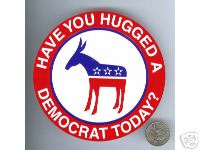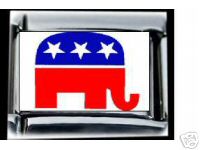Flea Market - Not the Next Growth Market
The sky is falling! Everyone is buying from the flea market! Nobody is buying from the store anymore!
What a scenario, huh? People, let us look at the facts. Unless they do it already, nobody is going to rush out to the flea market to buy their items. Think about it. Let us look at our current system, and then see how it would change under the FairTax. Currently, between 15% and 26% (22% on average) of embedded taxes are included in the price of an item purchased at the retail counter. When somebody takes that item home, and then decides they do not want it anymore, they may decide to sell it on craigslist.org or at a garage sale. However, the person selling the item at the garage sale is not incurring any additional tax costs (except the income tax they paid before they bought that item – another subject for a different article). They buy, and then sell it – no money goes to the government for that used item sale. That is the way it happens now – embedded taxes when new, but no embedded taxes when used.
What would happen if the FairTax becomes law? Well, first, the new items would competitively decrease in price because of all the embedded taxes and compliance costs (Remember – average of 22%). Second, the used items do not have those embedded costs, so there would be virtually no price decrease. OK, so the new items would be cheaper than a “like new” product. Nevertheless, let us add the 23% sales tax to the mix. Add that rate to the new items. However, you do not add that rate to the used items. What do you have? It is a wash (virtually no difference), plain and simple!
What it comes down to is that there will not be an advantage to suddenly going out to buy used clothes and other items. Price differences will remain virtually the same between new and used.
What a scenario, huh? People, let us look at the facts. Unless they do it already, nobody is going to rush out to the flea market to buy their items. Think about it. Let us look at our current system, and then see how it would change under the FairTax. Currently, between 15% and 26% (22% on average) of embedded taxes are included in the price of an item purchased at the retail counter. When somebody takes that item home, and then decides they do not want it anymore, they may decide to sell it on craigslist.org or at a garage sale. However, the person selling the item at the garage sale is not incurring any additional tax costs (except the income tax they paid before they bought that item – another subject for a different article). They buy, and then sell it – no money goes to the government for that used item sale. That is the way it happens now – embedded taxes when new, but no embedded taxes when used.
What would happen if the FairTax becomes law? Well, first, the new items would competitively decrease in price because of all the embedded taxes and compliance costs (Remember – average of 22%). Second, the used items do not have those embedded costs, so there would be virtually no price decrease. OK, so the new items would be cheaper than a “like new” product. Nevertheless, let us add the 23% sales tax to the mix. Add that rate to the new items. However, you do not add that rate to the used items. What do you have? It is a wash (virtually no difference), plain and simple!
What it comes down to is that there will not be an advantage to suddenly going out to buy used clothes and other items. Price differences will remain virtually the same between new and used.




1 Comments:
New and used goods will cost the same? That statement is retarded. Oh yeah, I have a car i want to sell you.
Monday, July 23, 2007 9:55:00 AM
Post a Comment
<< Home